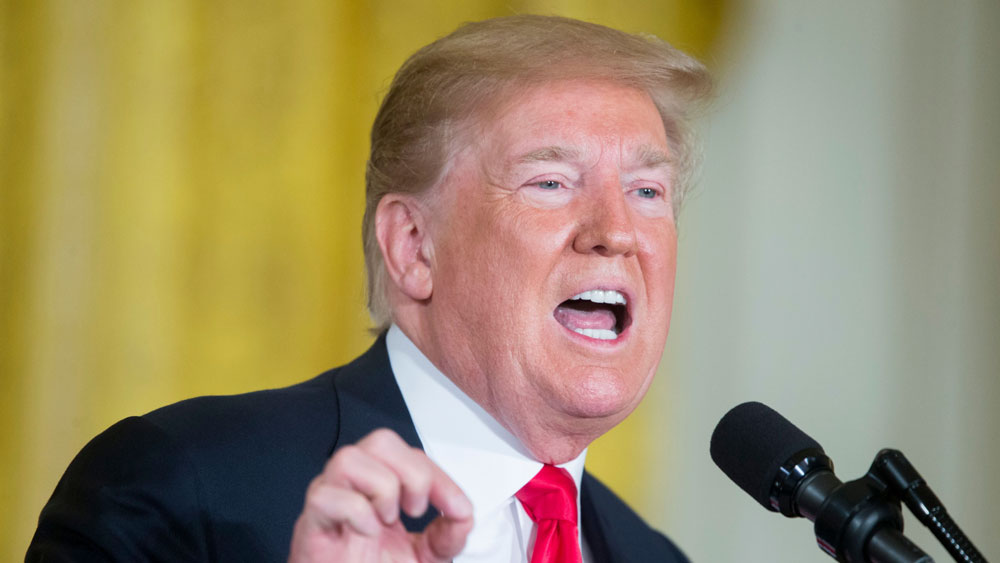Trump Says Apple Should Rebuild Manufacturing in the U.S. to Avoid Tariffs
By Janko Roettgers
LOS ANGELES (Variety.com) – President Trump responded to Apple’s concerns about tariffs with a tweet Saturday morning, acknowledging that products could get more expensive as a result of his administration’s escalating trade war with China.
However, suggested that there was an “easy solution” to this issue. All Apple had to do to avoid import taxes was to rebuild all of its manufacturing in the U.S. “Start building new plants now,” he tweeted. “Exciting!”
Apple didn’t immediately respond to a request for comment.
Trump told reporters Friday that his administration was days away from imposing a new round of tariffs on imports worth $200 billion, and that it could follow up with another round of tariffs on goods worth an additional $267 billion.
Apple voiced its concerns about these tariffs in a public filing Friday , arguing that tariffs could make a wide range of products the company is selling to U.S. consumers more expensive. Affected products will include Apple Watch, Homepod, Apple Pencil, Air Pods, Mac Mini, cables, adapters and other accessories, according to the filing.
“Our concern with these tariffs is that the U.S. will be hardest hit, and that will result in lower U.S. growth and competitiveness and higher prices for U.S. consumers,” the company wrote. “Because all tariffs ultimately show up as a tax on U.S. consumers, they will increase the cost of Apple products that our customers have come to rely on in their daily lives.”
The suggestion that Apple could easily move all of its manufacturing to the U.S. doesn’t quite match up with the realities of the consumer electronics industry, which depends on China’s significantly lower wages as well as the country’s massive manufacturing infrastructure.
Apple doesn’t actually run its own factories in China, but uses contract manufacturers like Foxconn to build the iPhone and other products. Foxconn’s largest factory is estimated to be 1.4 square miles in size, and reportedly at one point housed up to 450,000 workers, many of which live in dorms on the factory grounds. Last year, a New York University student who worked undercover in an iPhone factory reported that he made $450 per month.
At the same time, Apple is already using components sourced from U.S. manufacturers in some of its products. For instance, the iPhone’s screen is made by Corning, a New York-based manufacturer specializing in touch screens and other high-tech glass products. The company said on its website that it spent over $50 billion for goods purchased from U.S. suppliers last year.

